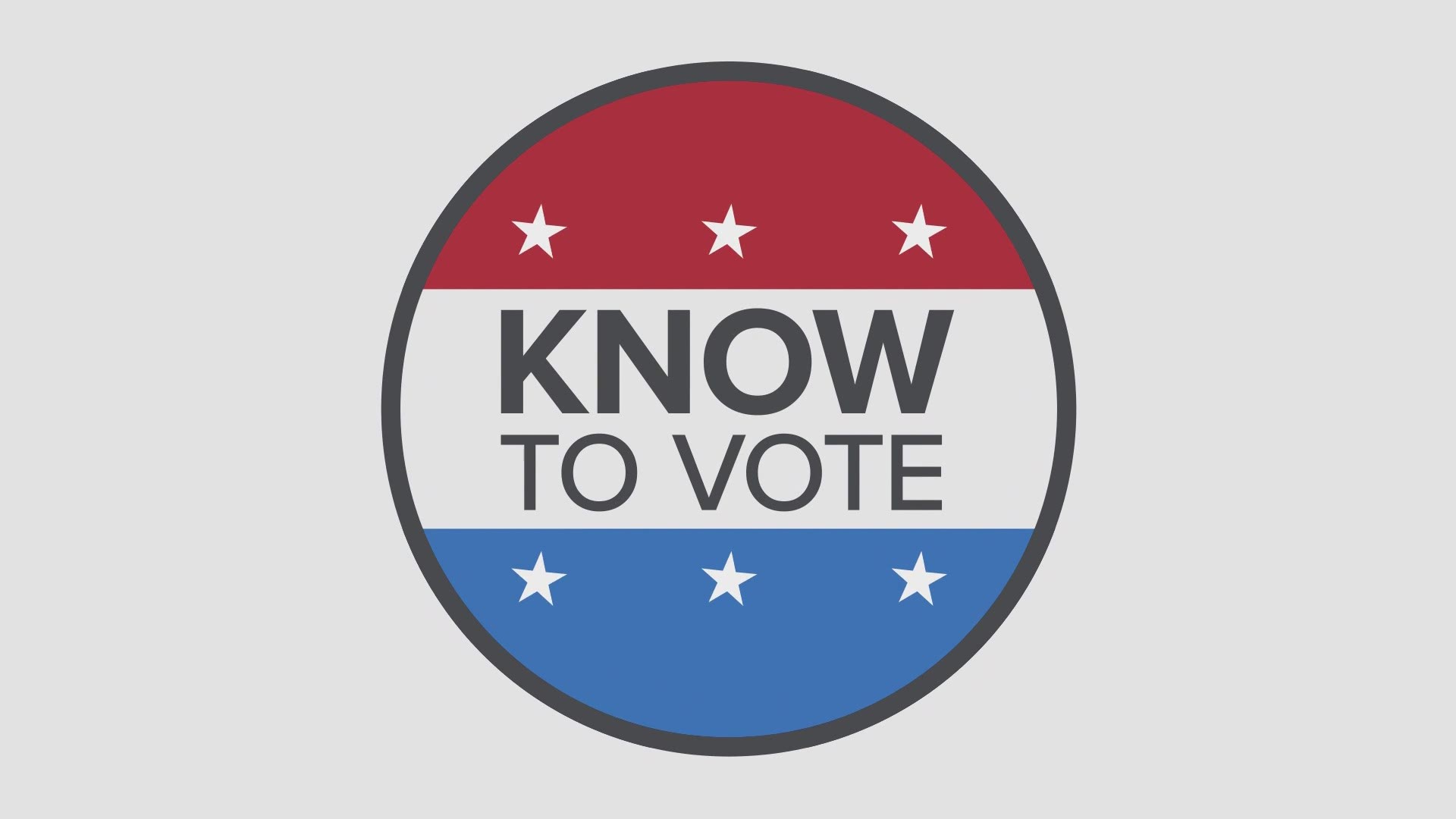ST. LOUIS — At the Sept. 29 presidential debate, President Donald Trump encouraged people to observe polling places on Election Day.
“I'm urging my supporters to go into the polls and watch very carefully, because that's what has to happen. I am urging them to do it," he said.
He was echoing a similar request he made during the 2016 campaign at an Ohio rally in August, when he said, “Get everybody to go out and watch.” He added, “And when I say ‘watch,’ you know what I'm talking about. Right?”
It has some wondering if they should expect to see their fellow voters turn out as poll watchers on Nov. 3.
“What we're seeing this year in 2020 is a real heightened increase in interest in poll observers in particular,” said Denise Lieberman, the non-partisan election protection coordinator for the Missouri Voter Protection Coalition.
“And people are very concerned and worried because of rhetoric, that we're hearing it all the way up through the national levels about having aggressive watchers at the polling place,” she said.
VOTER GUIDE 2020: Everything you need to know about the election in Missouri and Illinois
Poll workers like election judges, safety coordinators and tech assistants are election officials who run polling places. Poll watchers, observers and challengers are a little different. As Maura Browning from the Missouri Secretary of State’s office pointed out, “Poll watchers and challengers are not part of the official election process; they are part of the political process.”
According to Missouri and Illinois state law, poll watchers and challengers are registered voters appointed by a political party committee to keep an eye on a polling place. Their names are given to the local election authority, giving them the ability to be in a polling location to hear and watch voter identities being verified and ballots being handled.
These volunteers have been a longstanding part of the political process. Some of them are even designated by their parties to be in the rooms where ballots are counted. The St. Charles County Democratic Party told 5 On Your Side it planned to have a poll watcher at every voting location in the county, "to ensure that everyone who is registered to vote is allowed to vote in a process that conforms with the law."
Illinois law allows for civic organizations — organizations formed to support or oppose ballot initiatives — and organizations that investigate election fraud to appoint poll watchers.
According to the law, nobody can show up at a polling place as a self-appointed poll watcher in Illinois and Missouri. Anyone who does enter a polling place without taking the appropriate steps for the purposes of observing can be removed by the election judge. The same goes for appointed challengers or observers who break the rules.
“The law also regulates what these folks can do inside the poll. They are not allowed to speak to voters directly,” said Lieberman.
If a poll challenger doubts someone’s eligibility to vote, state law in Missouri and Illinois states the challenger takes that up with the election judge.
“They are allowed to stand next to the check-in table observing conditions in a way that's not intrusive to the voting process, and they are allowed to challenge a voter’s eligibility,” said Lieberman. “A reason would be that they have a reason to believe that your identity is not who you say you are, that your residency is not what you say it is or that your qualifications to vote may have changed.”
She added, “Simply because you’re challenged does not mean that you can't get a regular ballot. All it triggers is a review of your registration and eligibility. You may have to sign a statement attesting to your identity or residency, but then you should be able to vote a regular ballot, as long as your registration checks out.”
There’s a perimeter around every polling location where campaign workers and signs are prohibited. Outside that circle, people may try to talk to you, but election law still states they can’t stand in your way to cast a ballot.
“Voters should not have to scoot around vehicles or cars or trucks or people or protests, and they should feel safe and secure entering and exiting a polling place,” said Lieberman.
Local law enforcement told 5 On Your Side they have plans to keep a close eye on polling places for any threat to public safety or voting rights. In St. Louis County, voters can expect to see county police officers at the polling place. According to the St. Clair County Sheriff’s Department, polling places also will be visited by representatives of the state and federal attorneys general, state police and even the FBI.
Officials recommended that voters contact their polling place election judge if they have questions about their vote or concerns about an election observer. For immediate issues of personal safety, voters should call the police or 911.
Lieberman encourages voters who are concerned about an obstruction at the polling place to call the Election Protection Hotline at 866-OUR-VOTE (866-687-8683). There, they can talk to an election lawyer and get advice about how to handle an obstacle or challenge to their vote.
KNOW TO VOTE:
- Ballots delivered to your door? More Missourians taking advantage of the option
- Election Day results: how winners are made official, how losers can challenge
- Preparing for the polls | What to bring when you cast your ballot
- Election Day: How races are called, when winners are declared
- How to study issues, candidates on your ballot
- Election 2020: Your top voting questions, answered

